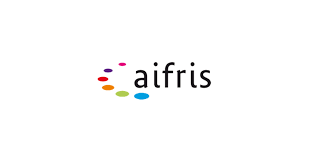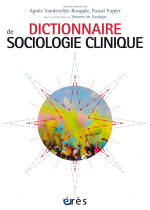[Emploi] Post-doctoral position H/F Issues of participatory design with monitored patients by connected implants
Applied and scientific contexts
The Real-life data for clinical research & care project called RealWorld4Clinic (https://eithealth.eu/project/realworld4clinic/) is financially supported by EIT Health. It involves universities, university hospitals, associations and companies over three years at a European level (2020-2023).
This project aims to transform the standard of care by moving from reactive to proactive management of heart health based on patient involvement. By diagnosing worsening heart failure 30 days before an emergency occurs, RealWorld4Clinic will reduce the number of days patients spend in hospital by half, while reducing hospital costs.
In addition to designing a cardiac implant called MyHeartSentinel, the EIT Health consortium will focus on the ethical, legal and social issues related to a new patient-centered approach to health care and the use of AIs to maximize cardiac health data.
Within the framework of this project built at a European level which intends to evaluate the medical, societal and economic stakes of this new health monitored by connected implants, one of the project’s workpackages deals more particularly with the issue of information and training through the involvement of future patients and first implanted patients. This workpackage aims to design information and training devices for a new health connected with patients and future patients. These co-designed devices aim to integrate the experience of future users on the transformations brought about by connected health. The areas of transformation will be situated from the point of view of: the image of the patient body, relations with stakeholders in the health sector (carers, family, insurance, associations, etc.), connected objects, monitoring, health data management, etc.
In cooperation with PU-PH teams from Grenoble University Hospital, including the Sentinhealth team and research teams from the Maison de la Création et de l’Innovation (https://www.univ-grenoble-alpes.fr/la-maison-de-la-creation-et-de-l-innovation/la-maison- de-la-creation-et-de-l-innovation–334056.kjsp) of Grenoble Alpes University, the researcher recruited for this post-doctoral position will have to design, test and manage co-design sessions with future patients and patients of connected and equipped with health information and education media over a period of one year, in order to transform the patient into a design partner and place him/her at the heart of the information and education process. The post-doctoral researcher will join a team that will be led to design different information, cooperation and education media referred to MyHeartSentinel.
Key objectives:
– Identify the issues and psychosocial parameters related to the emergence of a health care systems integrating MyHeartSentinel type of devices (https://sentinhealth.com),
– Apprehend the transformations of the relationship to the connected patient, to his body through an implanted connected monitor, to prevention and to his environment,
– Understand the issues related to the health data process and monitoring via implants (in cooperation with the Ethics and AI Chair in Grenoble).
To carry out this research, the post-doctoral researcher recruited will have to refer to previous studies managed within the framework of RealWorld4Clinic by the workpackages that will have started in 2020 and those carried out in other similar scientific contexts. This work will be
based on the scientific knowledge results from co-design experiments with users of protocols for the appropriation of connected and/or implanted devices in the healthcare field (Andersen, 2010; Grosjean, Bonneville, Redpath, 2019).
Bibliography:
Andersen, T.,2010,” The Participatory Patient”, Proceedings of the 11th Biennial Participatory Design Conference (p. 151–154). New York, USA.
Grosjean, S., Bonneville, L. Redpath, C., 2019 “The Design Process of an mHealth Technology: The Communicative Constitution of Patient Engagement Through a Participatory Design Workshop” in ESACHESS Journal for Communication Studies”
Vol. 12 N° 1(23): pp. 5-27: https://www.essachess.com/index.php/jcs/article/view/442/0
Researched profile:
PhD in following disciplines: Information and Communication Sciences, Philosophy and/or Anthropology of the body and techniques, Sociology of the uses of the body.
Skills and experiences: participation in co-design projects of devices in the health field.
– Interest in teamwork and inter-disciplinary collaborations.
– French-English bilingual
Scientific deliverables:
– Organization of a research meeting.
– At least 2 publications (in their own name or in collaboration with the teacher-researchers and researchers involved in the project) in internationally ranked journals related to the IPhiG/MIAI « Ethics & IA » Chair.
Scientific manager of the contract: Pr. Fabienne Martin-Juchat
Laboratory: GRESEC (UGA) in cooperation with Institut de Philosophie de Grenoble (IPhiG, UGA);
Place of work and experimentation: platforms of the Maison de la Création et de l’Innovation in connection with teams and resources.
Close collaboration with the MIAI chair « Ethics & AI » (Dr. Pr. Thierry Ménissier, UGA/IPhiG):
https://iphig.univ-grenoble-alpes.fr/programmes-recherche/chaire-ethique-ia https://miai.univ-grenoble-alpes.fr/research/chairs/ethics-ai- 813571.htm?RH=6499587984020525 .
Contact: fabienne.martin-juchat@univ-grenoble-alpes.fr Place: University Grenoble Alpes
Duration: 12 months
Closing date for applications: 30 November 2020 Start date: January 2021
Contrat post-doctorat H/F
Enjeux de la co-conception avec des patients de dispositifs d’information et de formation à la santé monitorée par des implants connectés
FICHE DE POSTE
Le projet Real-life data for clinical research & care nomméRealWorld4Clinic(https://eithealth.eu/project/realworld4clinic/) est soutenu financièrement par l’EIT Health. Il implique sur trois ans à un niveau européen des Universités, des CHU, des associations et des entreprises (2020-2023).
Ce projet vise à transformer la norme de soins en passant d’une gestion réactive à une gestion proactive de la santé cardiaque à partir d’une implication des patients. En diagnostiquant l’aggravation de l’insuffisance cardiaque 30 jours avant qu’une urgence ne survienne, RealWorld4Clinic réduira de moitié le nombre de jours passés à l’hôpital par les patients, tout en diminuant les coûts hospitaliers.
Outre la conception d’un implant cardiaque nommé MyHeartSentinel, le consortium EIT Health va se focaliser sur les problèmes éthiques, juridiques et sociaux liés à une nouvelle approche de la santé centrée patients et à l’utilisation de l’IA pour maximiser les données sur la santé cardiaque.
Dans le cadre de ce projet construit à un niveau européen qui compte évaluer les enjeux médicaux, sociétaux et économiques de cette nouvelle santé monitorée par des implants connectés, un des workpackage du projet traite plus particulièrement de la question de l’information et de la formation par l’implication des futurs patients et des premiers patients implantés. Ce workpackage vise à concevoir des dispositifs d’information et de formation à une nouvelle santé connectée en impliquant des patients et des futurs patients. Ces dispositifs co- conçus visent à intégrer le vécu des futurs usagers sur les transformations opérées par la santé connectée. Les domaines de transformations se situeront du point de vue de : l’image du corps patient, les relations aux parties prenantes du secteur santé (soignants, famille, assurances, associations, etc.), aux objets connectés, au monitoring, à la gestion des données de santé, etc.
En coopération avec des équipes de PU-PH du CHU de Grenoble dont l’équipe de Sentinhealth et les équipes de la Maison de la Création et de l’Innovation (https://www.univ-grenoble- alpes.fr/la-maison-de-la-creation-et-de-l-innovation/la-maison-de-la-creation-et-de-l- innovation–334056.kjsp) de l’Université Grenoble Alpes, le chercheur/la chercheuse recruté.e sur cet emploi post-doctoral devra sur une période d’un an concevoir, tester et accompagner des sessions de co-design avec des futurs patients et des patients de dispositifs d’information et de formation en santé connectée et appareillée, afin de transformer le patient en partenaire de conception et le placer au cœur du dispositif informationnel. Le/la.e post-doctorant intègrera une équipe qui sera amenée à concevoir différents dispositifs d’information, de coopération et d’éducation en lien avec MyHeartSentinel.
Il s’agira en résumé :
-
– d’identifier les enjeux et les verrous psychosociaux en lien avec l’émergence d’une
santé connectée et appareillée par des moniteurs implantés de type MyHeartSentinel (https://sentinhealth.com),
d’appréhender les transformations du rapport au patient connecté, à son corps par le biais d’un moniteur connecté implanté, à la prévention et à son environnement, -
– d’identifier les enjeux relatifs à la collecte, la transmission et le traitement de données en santé et au monitoring via des implants (en lien avec la chaire éthique et IA de Grenoble).
Pour mener à bien ce travail, la personne recrutée devra s’appuyer sur des études préalables menées dans le cadre de RealWorld4Clinic par les workpackages qui auront démarré en 2020 et celles menées dans d’autres contextes scientifiques similaires. Ce travail s’appuiera sur les acquis scientifiques relatifs à des expériences de co-conception avec des usagers de protocole d’appropriation de dispositifs connectés et/ implantés dans le domaine de la santé (Andersen, 2010 ; Grosjean, Bonneville, Redpath, 2019).
Bibliography:
Andersen, T.,2010,” The Participatory Patient”, Proceedings of the 11th Biennial Participatory Design Conference (p. 151–154). New York, USA.
Grosjean, S., Bonneville, L. Redpath, C., 2019 “The Design Process of an mHealth Technology: The Communicative Constitution of Patient Engagement Through a Participatory Design Workshop” in ESACHESS Journal for Communication Studies”
Vol. 12 N° 1(23): pp. 5-27: https://www.essachess.com/index.php/jcs/article/view/442/0
Formation et compétences recherchées
– Doctorat dans une des disciplines suivantes: Sciences de l’Information et de la Communication, Philosophie et/ou Anthropologie du corps et des techniques, Sociologie des usages du corps.
Expériences souhaitées : participation à des projets de co-design de dispositifs dans le domaine de la santé.
– Intérêt pour le travail en équipe et les collaborations pluridisciplinaires – Bilinguisme français-anglais
Livrables attendus
-
– Organisation d’une journée de recherche sur le sujet.
-
– 2 publications au moins (en nom propre ou en collaboration avec les enseignants-
chercheurs et chercheurs impliqués dans le projet) dans des revues classées à l’international en lien avec la chaire « éthique & IA » IPhiG/MIAI.
Responsable scientifique du contrat : Pr. Fabienne Martin-Juchat
Laboratoire d’accueil : GRESEC (UGA) en coopération avec Institut de Philosophie de Grenoble (IPhiG, UGA) ;
Lieu de travail et d’expérimentation : plateformes de la Maison de la Création et de l’Innovation en lien avec les équipes et les ressources.Collaborations étroites avec la chaire MIAI « Éthique & IA » (dr. Pr. Thierry Ménissier, UGA/IPhiG) : https://iphig.univ-grenoble-alpes.fr/programmes-recherche/chaire-ethique-ia https://miai.univ-grenoble-alpes.fr/research/chairs/ethics-ai- 813571.htm?RH=6499587984020525 .
Informations pratiques
Contact : fabienne.martin-juchat@univ-grenoble-alpes.fr Lieu : Université Grenoble Alpes
Durée : 12 moisClôture des candidatures : 30 novembre 2020 Prise de poste : janvier 2021


